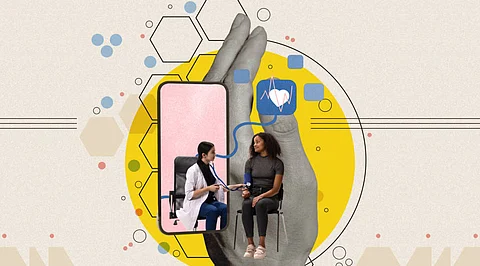Will Blockchain Revolutionize Healthcare?
Blockchain technology revolutionizes the healthcare industry in different and beneficial ways
Blockchain technology is transforming healthcare in a variety of ways, from patient-centric hospital networks to higher-quality medicine. Blockchain is a decentralized digital ledger of transactions that records data in a form that resists hacking and data alteration by replicating transactions and disseminating them to "nodes" across the network, as was covered in earlier posts.
The Medical Sector Will Be Able to Securely Communicate and Access Patient Data: To achieve real interoperability, the technology would "enable finely adjustable openness while upholding only the finest security requirements," according to Morey. This will improve healthcare delivery by enabling health information systems to "operate collaboratively within and across organizational boundaries." One business using blockchain to protect patient data is Chronicled.
Contract Discussions Will Be Improved by Blockchain: Contract talks can become very complicated in the healthcare sector, which can take a lot of time. Yet, blockchain is already offering a remedy. According to Morey, a business by the name of Curisium uses the technology "to establish a platform for rebate negotiating and contract administration." He continues by saying that the platform "enables providers and payers to participate in novel contracting arrangements," which streamlines conventional processes.
Blockchain Can Connect Massive Medical Networks and Encourage Innovation: For instance, Thailand's healthcare system now includes a "blockchain, data-driven, patient-centric network" thanks to a startup by the name of Ever. 5 million patients and more than 170 hospitals were connected by the technology. In addition to maintaining tight and simple contact with trusted parties, it allows best-in-class security for all connected data and parties-all on a flexible, future-proof, scalable blockchain base, according to Morey.
Blockchain Enables Businesses to Design Networks That Are Both Transparent and Secure: With the help of blockchain technology, hospitals can swiftly and securely transmit patient data. A blockchain-powered network is "protected by cutting-edge security technologies, and attackers would require huge computational resources to even consider attacking it, significantly restricting the frequency, feasibility, and effectiveness of attacks," claims Morey. Patientory is one business that does this using blockchain. It creates "patient-centric applications" that offer up-to-date patient histories and data, pandemic tracking and reporting, and secure communication with certified healthcare workers.
Join our WhatsApp Channel to get the latest news, exclusives and videos on WhatsApp
_____________
Disclaimer: Analytics Insight does not provide financial advice or guidance. Also note that the cryptocurrencies mentioned/listed on the website could potentially be scams, i.e. designed to induce you to invest financial resources that may be lost forever and not be recoverable once investments are made. You are responsible for conducting your own research (DYOR) before making any investments. Read more here.
.png)

